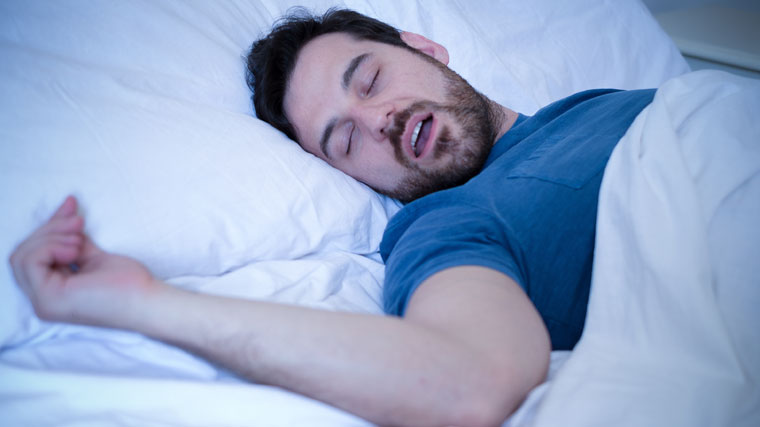- Cardiology And Vascular Health
- Health Topics
- Heart Disease Risk Factors
- Heart Health
- Sleep
- Special Health Conditions
Studies Show Links Between Sleep Apnea, Heart Disease

If your partner has complained about your extremely loud snoring, it’s possible you are facing a more serious problem than annoying the person in bed next to you.
Sleep apnea is a common sleep disorder that causes one or more pauses in your breathing or shallow breathing while you sleep.
It is usually a chronic condition, meaning that it is ongoing.
The pauses in your breathing can last anywhere from a few seconds to minutes, and they can happen more than 30 times in an hour. When you start breathing normally again, it usually starts with a loud snort or choking sound.
When your breathing pauses, it usually makes you move from a deep sleep to a light sleep.
Because your sleep is interrupted, sleep apnea can make you tired during the day. It is the leading cause of daytime sleepiness.
Sleep apnea often goes undiagnosed because people don’t usually know they have it until a sleeping partner or other family member tells them they are snoring loudly or that they stop breathing while they sleep.
Obstructive sleep apnea is the most common kind of sleep apnea and typically occurs in people who are overweight.
The disorder is more common in men than women, especially African American and Hispanic men.
Aside from causing sleep loss, sleep apnea has been linked to heart disease, which is the leading cause of death in the United States. It’s estimated that if you have sleep apnea, you are two to four times more likely to develop heart arrhythmias (abnormal heart rhythms) than people without this condition, according to the American Heart Association (AHA). Sleep apnea also has been shown to increase the risk of heart failure by 140 percent, and the risk of coronary heart disease by 30 percent, says the AHA. In addition, sleep apnea is closely associated with high blood pressure and stroke.
If you think you may have sleep apnea, or your partner notices pauses in your breathing when you sleep, talk to your physician. A sleep study can determine if you have sleep apnea.
Sources: National Institutes of Health; American Sleep Apnea Association; National Sleep Foundation; American Heart Association




